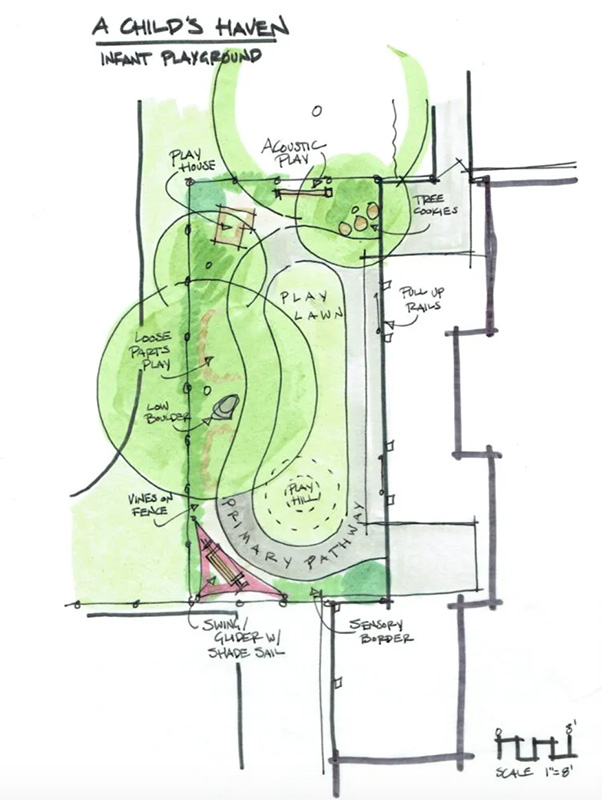Because we can’t take our Early Learning Nation Studio on the road during this time, stay tuned as ELN recaps Top Takeaways from important conversations, town halls, webinars and virtual events from the Early Learning field. And visit our Early Learning Nation channel on YouTube for interviews with leaders from education, child development, business, politics and more.
On Friday, February 25, this year’s Nurturing Developing Minds Conference took place virtually. Co-organized by the Institute for Child Success (ICS), Prisma Health Children’s Hospital, The South Carolina Leadership Education in Neurodevelopmental and Related Disabilities and the South Carolina Developmental Disabilities Council, the event centered on the theme of “Strengthening Families.”
Here are our takeaways:
1. Covid is giving us the chance to imagine things differently. In her remarks, Dr. Carol Cohen Weitzman, Professor Emeritus of Pediatrics at the Yale School of Medicine, cited a series of alarming statistics (warning us ahead of time that she would bring us down before giving us reasons to be hopeful):
- 1 in 6 children have a developmental disability (Centers for Disease Control and Prevention)
- More than 10 million children were living in poverty before the pandemic, more than 70 percent of them children of color (Children’s Defense Fund)
- More than 200,000 U.S. children have lost a parent or caregiver to Covid (Harvard University’s Charles Nelson, quoted in Newsweek, referring to the wave of “Covid Orphans”)
Dr. Weitzman called for a massive response to the current and growing mental health crisis. (Read more: Senators to craft major mental health package with focus on reforming pay parity, expanding telehealth.) Funds are needed to reduce waitlists for screening and services.
2. Resilience is a collective, not individual, power. “Trauma can promote resilience,” said Dr. Weitzman, hailing research into psychosocial protective factors and work being done at the Institute of Child Development at the University of Minnesota, but she clarified that human flourishing doesn’t matter as much on the individual level as it does for populations. Assets such as interconnectedness and interdependency are what lead to individual bravery—not the other way around. “Evidence for resilience at the structural level,” she said, “lasts into future generations.”

3. The great outdoors beckons. In a discussion titled “Program Innovations for the ‘New Normal’.” Tanya Camunas, Executive Director, A Child’s Haven in Greenvile, S.C., described her organization’s philosophy of delivering behavioral health services, in a child care setting, free of charge to Medicaid-eligible families. Play and family therapy are integral aspects of their approach, and while they shifted to telehealth support during the pandemic, the limitations of this mode of delivery were unmistakable.
A Child’s Haven sits on four acres of land, however, which is allowing Camunas and team to extend the facility into the outdoors with its Therapeutic Outdoor Environment (known as TOEs); construction will finish soon.
4. Telehealth may remain in the toolkit. Sonya Ebeling of the Medical University of South Carolina’s Center for Telehealth said that in many cases, temporary pandemic-driven adjustments are becoming permanent, explaining that the Centers for Medicare and Medicaid Services has indicated it will continue to approve reimbursement for telehealth services.
Ben Goodman of Family Connects described how his organization modified its universal postpartum home visiting program during the pandemic. The current model includes
- A check-in call with a nurse at one week
- A virtual in-home visit at three weeks postpartum
- Periodic, structured supportive calls—“a lighter touch”—lasting 20-30 minutes
Preliminary evidence shows that this modified version of Family Connects’ historic model “reduces feelings of isolation and concerns about routine medical care,” Goodman said, but decisions about a hybrid model going forward await evaluation of quality and impact.
5. The workforce crisis has solutions. ICS’s Megan Carolan presented highlights from her December 2021 white paper Early Childhood Workforce: Supporting the Professionals Who Support Our Families that focuses on
- Compensation, which encompasses more than wages. Benefits and family-friendly policies can make the difference between success and failure in these demanding roles.
- Burnout, which can be “contagious”; Carolan said employers need to shift to a preventive approach rather than reacting to crises as they arise. Regarding the often-invoked power of self-care, she argued that what matters is a culture where self-care is valued and respected.
- Safety, which is a multifaceted issue, applying to professionals as well as the children in their care. The pandemic endangered child care educators; as the Heising-Simons Action Fund’s Rebecca E. Gomez wrote in a recent op-ed, “While serving as essential workers during the pandemic, they risk their lives and those of their family members.” Carolan’s paper delves into safety issues and proposed solutions for child welfare professionals.
- Retention. It’s harder to replace educators who leave than it is to retain the existing workforce, but financial hardship have led to a wave of departures, which leads to further hardships. Professional training and peer support are among the most promising solutions in Carolan’s paper, the conclusion of which states: “Children and families do not magically experience improved outcomes just by simple investments in health, education and welfare; these impacts are only achieved if they are served by a dedicated and talented workforce well-suited to meet their needs.”
“There has never been a more important time to be in the business of caring for children,” Dr. Weitzman declared. Carolan and the other speakers emphasized both the business and the caring aspects of this clarion call.

Mark Swartz
Mark Swartz writes about efforts to improve early care and education as well as developments in the U.S. care economy. He lives in Maryland.



